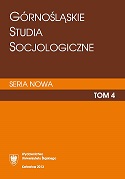

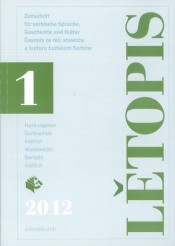
Keywords: Sorbian Literature; Poland; Lusatian Sorbs; Polen; Katowice; Sorabistik;
The publishing house “Śląsk” in Katowice was particularly renowned for its reception of Sorbian literature, which had never been particularly popular in Poland. After 1989, on the other hand, the dissemination of the literature and culture of the Lusatian Sorbs was concentrated in a number of universities (Warsaw, Opole, Wrocław, Katowice), at which friendship societies were sometimes founded at the same time and some still exist today. In addition, cultural days and similar events were also organised. At the University of Silesia, Katowice-Sosnowiec, Sorbian studies are also not a separate area of study. However, lec-turers in Western Slavonic studies make sure that they include the Sorbian language, culture and history in the appropriate part of the curriculum. In addition, since the political changes the state of research on the Sorbs and Lusatia has been presented at three international conferences, and the corresponding conference proceedings have already appeared or are in preparation.
More...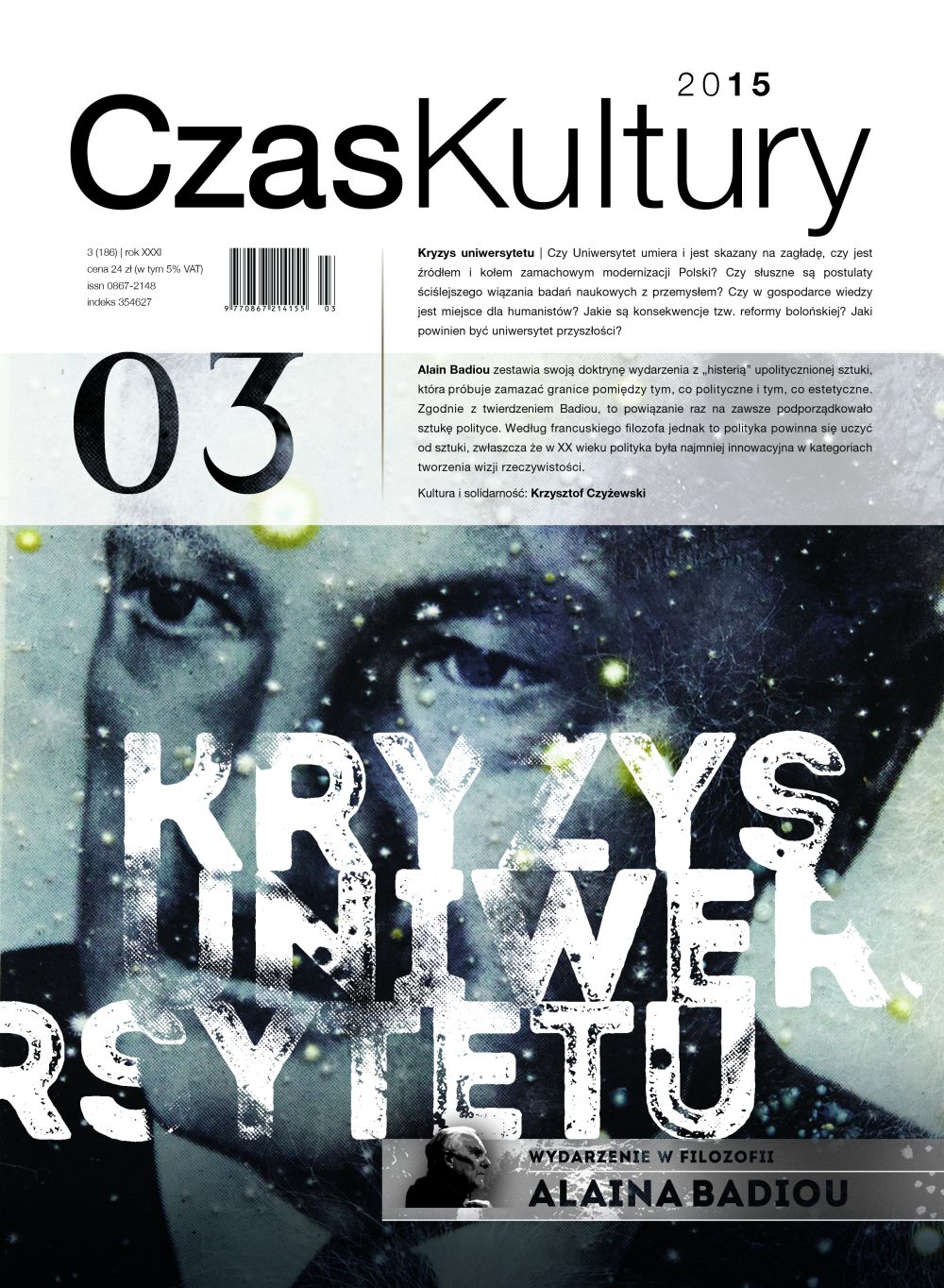
Keywords: university;society
The article presents a rebuttal to the belief that the crisis in the humanities is due to a lack of jobs for graduates of the humanities. The main argument is that the crisis affects the whole university and is associated with its place in relation to the state and the market. The author argues for the need to rethink the relationship between the university and society.
More...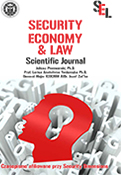
Keywords: strategy of an organisation;university;learning organisation;the Code of Bushido
Autorzy artykułu wyrażają pogląd, iż współczesna dynamika zmian niejako wymusza, iż firmy i organizacje, chcąc uczestniczyć w tych procesach, mają głównie potrzebę bycia organizacjami uczącymi się lub przekształcającymi się w takie organizacje. W XXI w. zaniechanie takiego podejścia może obniżyć poczucie bezpieczeństwa organizacji. Dlatego też zarówno stan bezpieczeństwa, jak również traktowanie tego pojęcia jako istotnej wartości w systemie wartości Maslowa, powinny stanowić jeden z istotnych elementów budowy strategii każdej szanującej się organizacji. Artykuł omawia to zagadnienie w oparciu o przykład Wyższej Szkoły Bezpieczeństwa Publicznego i Indywidualnego „Apeiron” w Krakowie.
More...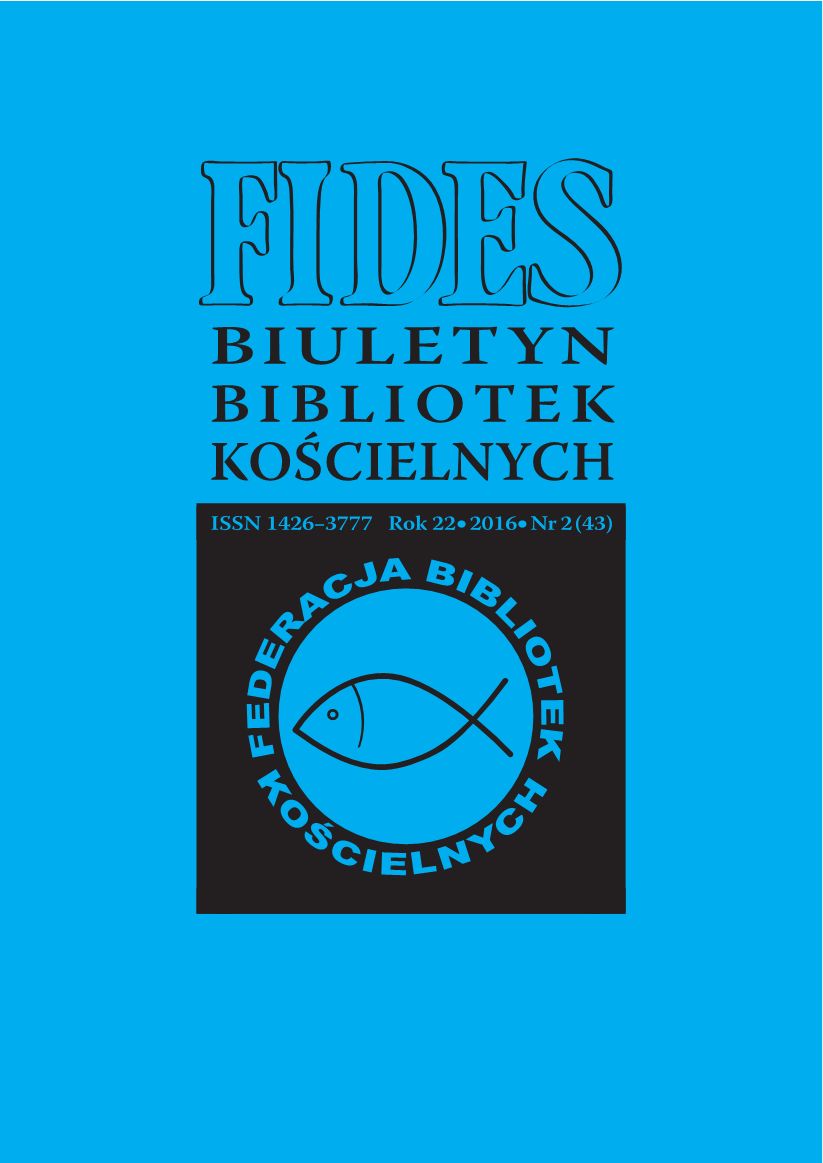
Keywords: Pawłowicz Maria;obituary notice;
More...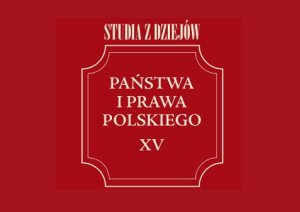
Keywords: Roman law; University of Silesia; University of Silesia Faculty of Law and Administration; Staszków, Michał; law curriculum
Roman law is one of the most important courses in the education of prospective lawyers. Hence, it simply had to be included in the law curriculum at the newly established University of Silesia, established in 1968. However, the history of teaching Roman law in Katowice reaches an earlier date, as it was taught since 1966 at the Katowice branch of the Jagiellonian University. The course in Roman law during the first academic year at the Universityof Silesia was taught by Professor Wacław Osuchowski, Dr Wiesław Litewski, and K.Kolba. When the University of Silesia was established, the course was handed over to assistant professor Michał Staszków, who moved to Katowice from the University of Wrocław.In addition to Roman law, Professor Staszków was interested in law on inventions, whichhe practiced from the 1970s.
More...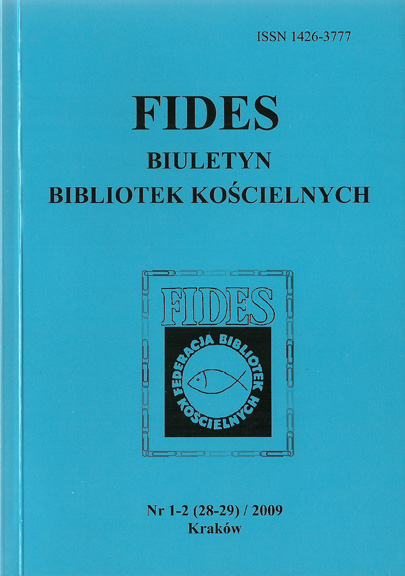
Uroczystym otwarciem przez Benedykta XVI Świętej Bramy w Bazylice św. Pawła za Murami rozpoczął się 28 czerwca 2008 r. Rok świętego Pawła. Pomysłodawcą zorganizowania obchodów 2000. rocznicy urodzin Apostoła był włoski kardynał Andrea Cordero Lanza di Montezemolo, od 31 maja 2005 r. – archiprezbiter Bazyliki. Propozycja uczczenia jubileuszu została zaaprobowana przez Benedykta XVI.
More...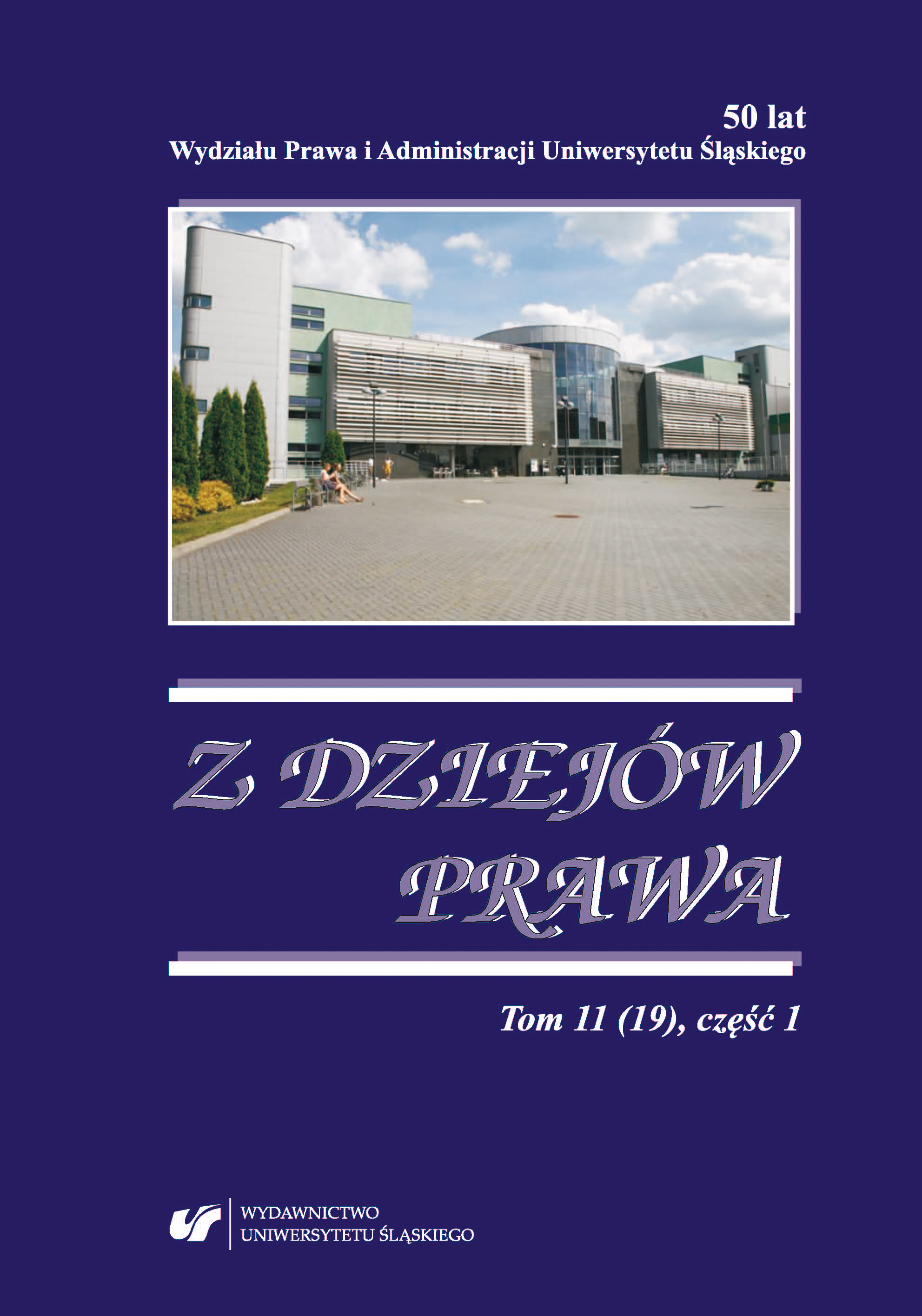

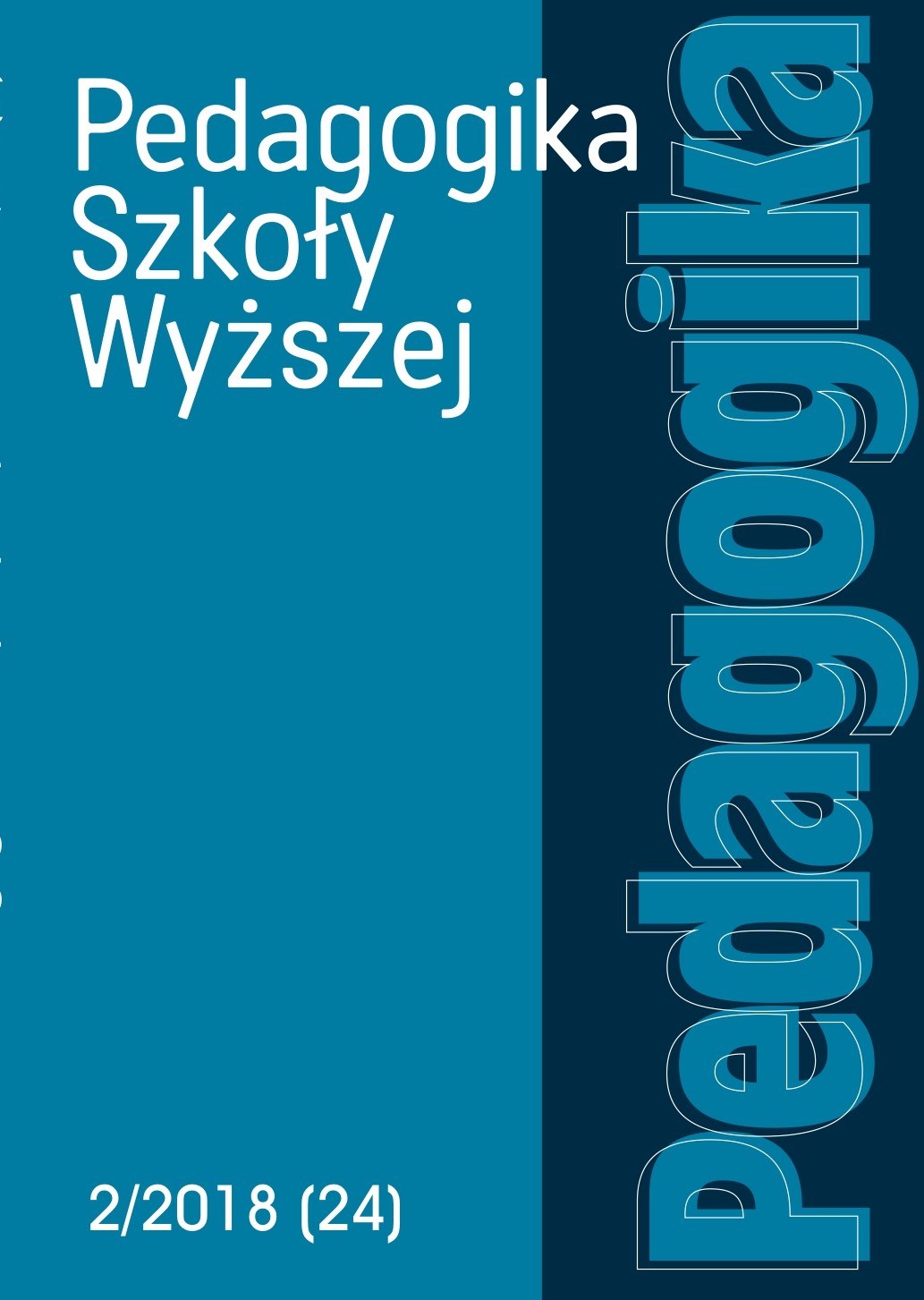
Keywords: university; autonomy; the death of university; pedagogical role of philosophy; technoscience; panpoliticization; corporatization; econo-thinking
In the article I analyze an issue of university autonomy from a philosophical perspective. I indicate that the issue is ambiguous at the level of the very idea that inevitably entails difficulties and complication at the level of practicing it. I prove that in this era when science has been transformed into technoscience, when the public domain has been panpoliticized probably in all its fields and areas, when universities have been passively succumbed to corporatization pressure and quite frequently also to a pressure of econo-thinking, in such circumstances the university autonomy is actually reflected basically in the sphere of ideas, pious hopes, festive declarations – yes, pleasing to the ear, but rather just for the humanistic-social one, if any, however not for everyone. Radicalization of this thesis, I think, entitles to a conclusion that university full autonomy in fact is possible only just as an idea. The complete university autonomy – regardless of epoch – is unrealizable or alternatively it might be actualized only if universities could become relatively closed systems isolated from environment, infrastructure as well as influences, interactions and correlations of the social, political, economic, cultural, philosophical, ethical and religious nature – both on local, regional, and global scale.
More...
Keywords: regional specialisation; smart specialisation; clusters; Lower Silesia;
Strategy Europe 2020 is intended to support smart specialisation, i.e. the innovative development of individual regions which benefit from what constitutes their specific and unique features. Regions have to indicate their strong points, and focus their activities on those areas of science and innovativeness which are complimentary to a given region’s resources and ultimately will create or strengthen its comparative advantages. The aim of this article is to present the concept itself, as well as the theoretical principles of smart specialisation in a regional dimension. In turn, they will become the basis for examining the role and the importance of clusters in the development of the regional specialisation of Lower Silesia. At the same time, the authors studied the possibilities of creating new clusters and their relevance for mapping out future areas of specialisation of the region, corresponding with the objectives of Strategy Europe 2020.
More...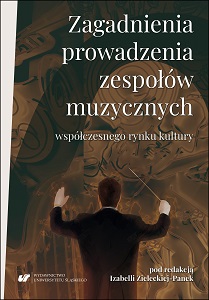
Keywords: “Harmonia”; “Ad libitum”; folk music; stylised folk song; the composers from Śląsk Cieszyński
The author presents the role of stylised folk song(s) in the repertoire of the “Harmonia” Choir of the University of Silesia and of the “Ad libitum” Chamber Choir. She also presents the significance of the modern-day choir song based on folklore and the means of the presentation of the given repertoire for the purpose of the popularisation and the cultivation of songster traditions. The author presents the example of songs contained on the Z biegiem Olzy CD, where the authentic song performed by folk songsters is confronted with the choral treatment of inter-war composers, and the conductors of the “Harmonia” Association of Songsters in Cieszyn.
More...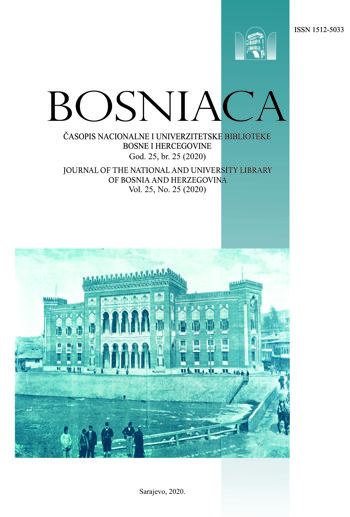
Keywords: university;Austro-Hungarian rule; Joint Ministry of Finance; Provincial Government in Sarajevo;
At the beginning of the 20th century; the Balkans was the epicentre of numerous crises and some of them (the Annexation Crisis 1908–1909 and the Balkan Wars 1912–1913) had a major effect on social activities in Bosnia and Herzegovina. Therefore; faced with a very complex political situation in the Balkans; Austro-Hungary was about to develop a strategy of increasing its own influence in the mentioned area. Consequently; Sarajevo was bound to play an important role in these plans. This paper argues that; by promoting the idea of establishing a university in Sarajevo; the Austro-Hungarian authorities were actually oscillating between their previous plan of conducting a cultural mission in Bosnia and Herzegovina and political machinations aimed at the annihilation of Serbian influence. The public reactions in Bosnia; as well as in the remainder of the Monarchy; forced the solicitors of this idea to re-examine their own political considerations.
More...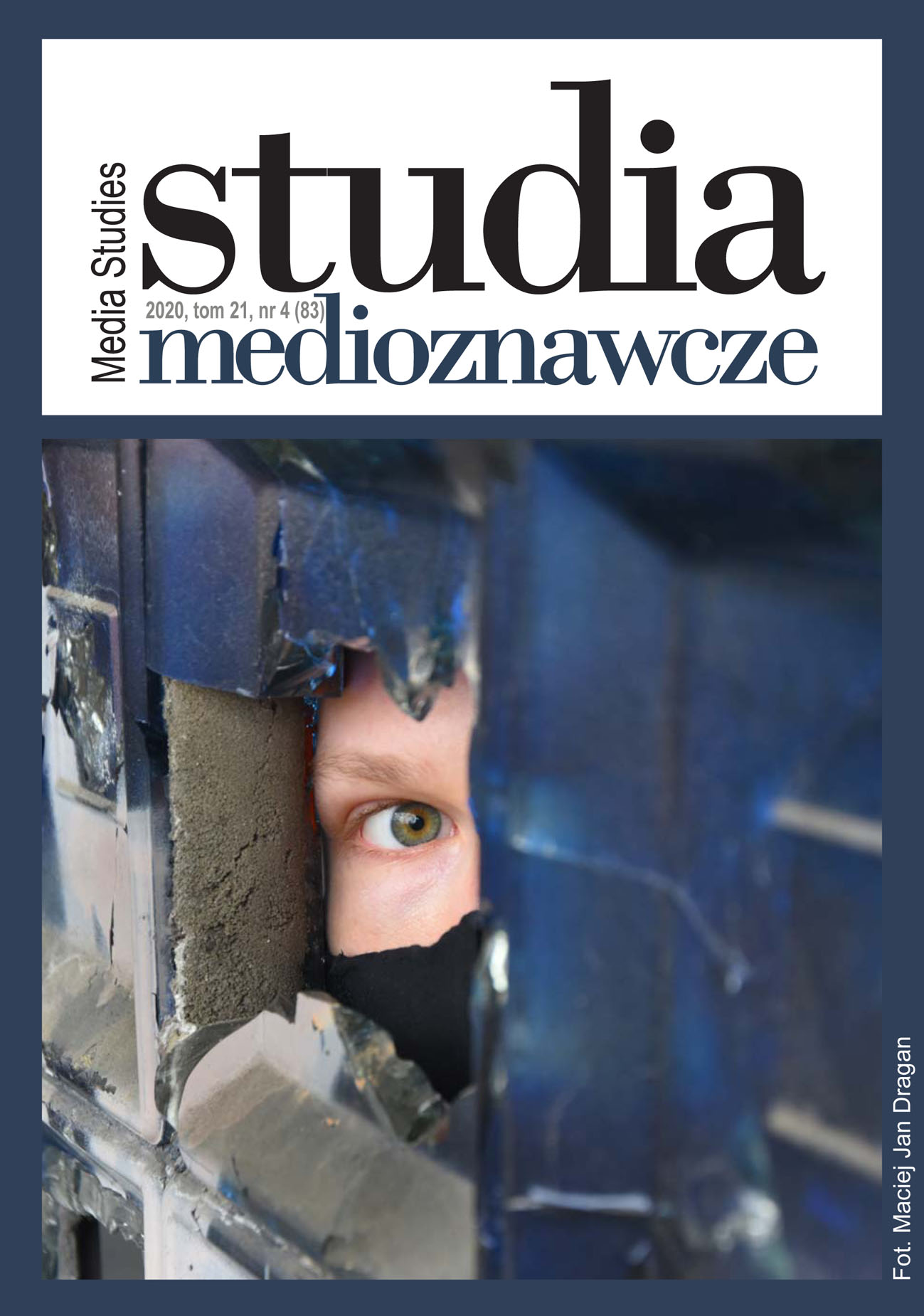
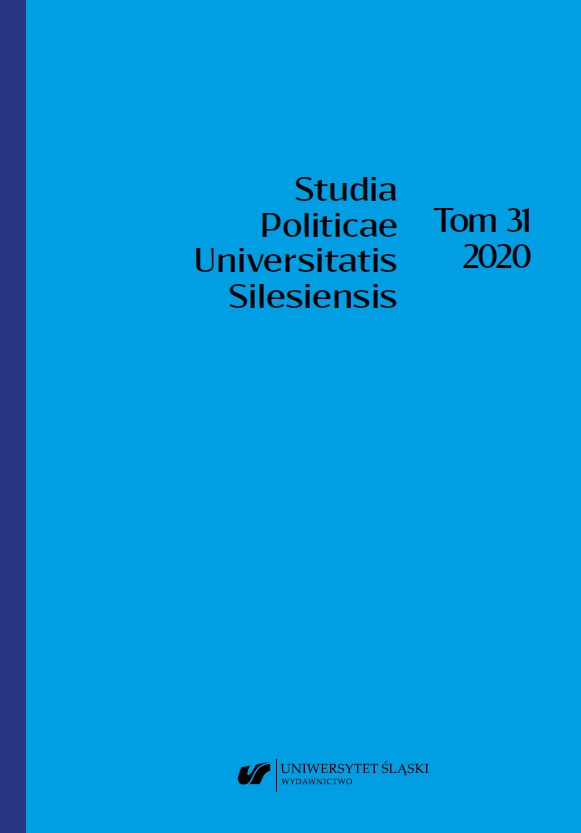
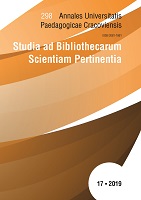
Keywords: information architecture degree course; Library and Information Science Department; course curriculum;
The Library and Information Science Department at the University of Silesia in Katowice is launching a new BA degree course in the 2018–2019 academic year. The programme combines in an original way information and communication technologies with humanities and social sciences. The paper presents the education concept of information architecture and the preparatory work involved in developing and implementing the course. The programme structure, selected module contents, the graduate profile and job opportunities for information architects are discussed.
More...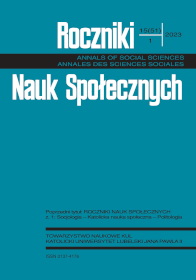
Keywords: university; academic culture; higher education; knowledge;
In the history of the university, it is possible to indicate life events and words like those of Kazimierz Twardowski about dignity and job of the university. These words are also important in the context of modernity, as the university, the primitive sources of which we can find in Ancient Greece, was coming through various times until it became an iconic institution of the postmodern society. The university is a place of forming and multiplying the capital and archiving knowledge. The article is an attempt to recreate dynamics of academic life from the Greek academy to the 21st century university.
More...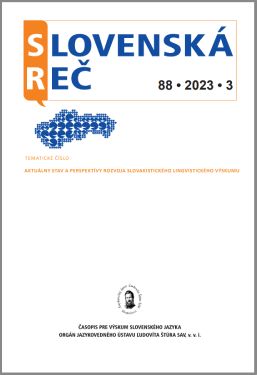
Keywords: University of Silesia; Slavic studies; Slovak language; linguistics; linguodidactics; Slovak lexis
The aim of this article is to present the scientific and publishing activities of Slavic linguists and linguodidacticians working at the University of Silesia in Katowice (Sosnowiec). We hereby present the recent scientific achievements covering the period 2018 to 2023 and describe the results of this research. The scientific interests and achievements are preceded by a brief description of the history of Slovak studies as an institution that educates Slovakists and conducts scientific research, cooperating with other Slovak scientific centres and institutions supporting education. The research interests of Silesian Slovakists oscillate around Slovak lexis and lexicology, as well as word formation and semantics. These include synchronic, confrontative, and contrastive Polish-Slovak and Slovak-Polish research and lexicological ones. Additionally, apart from the purely linguistic interests of Slovakists, the focus of their interest is linguodidactics and teaching Slovak as a foreign language.
More...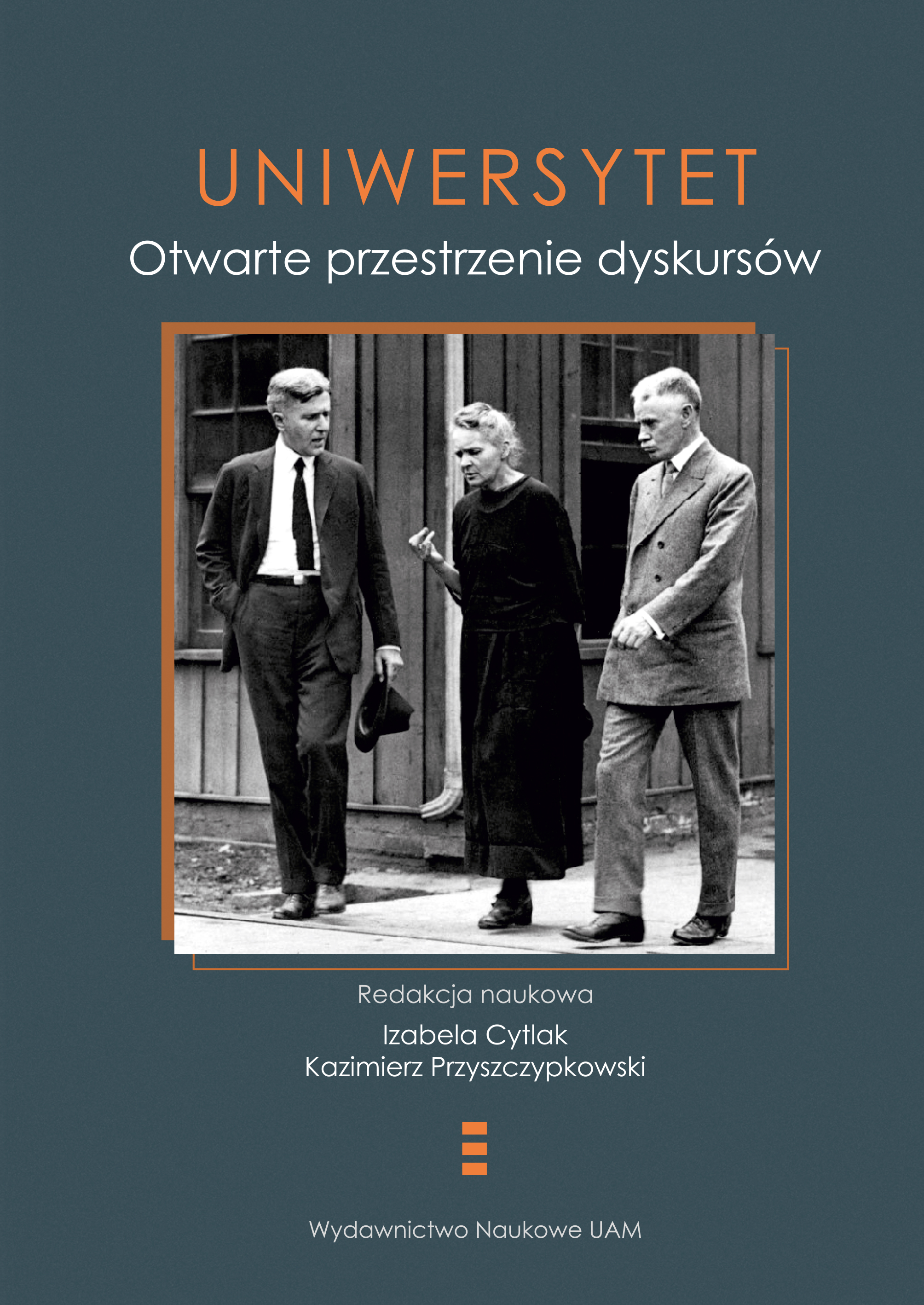
Keywords: university; academic discourse; knowledge transfer; scientific thinking and action styles; education; interdisciplinarity
The university as a community of thinking and free people has always been of interest to researchers. A discussion of the open spaces of university discourse can provide a starting point for a debate about styles of scientific thinking and action. In the space of the university, we can certainly see scientific discourse, scientific and research discourse, but also increasingly popular science discourse or 'absent discourses'. This book is a generational transmission of knowledge, a kind of transfer between knowledge and experience and what is just entering the world of science. It is a kind of encouragement to use the scientific achievements combining the interpenetrating disciplines of academic knowledge. Texts by prominent figures from the world of science presenting various fields of science are gathered in one place. We dedicate the book to both scholars and students wishing to learn about the intersecting areas of the architecture of academic knowledge.
More...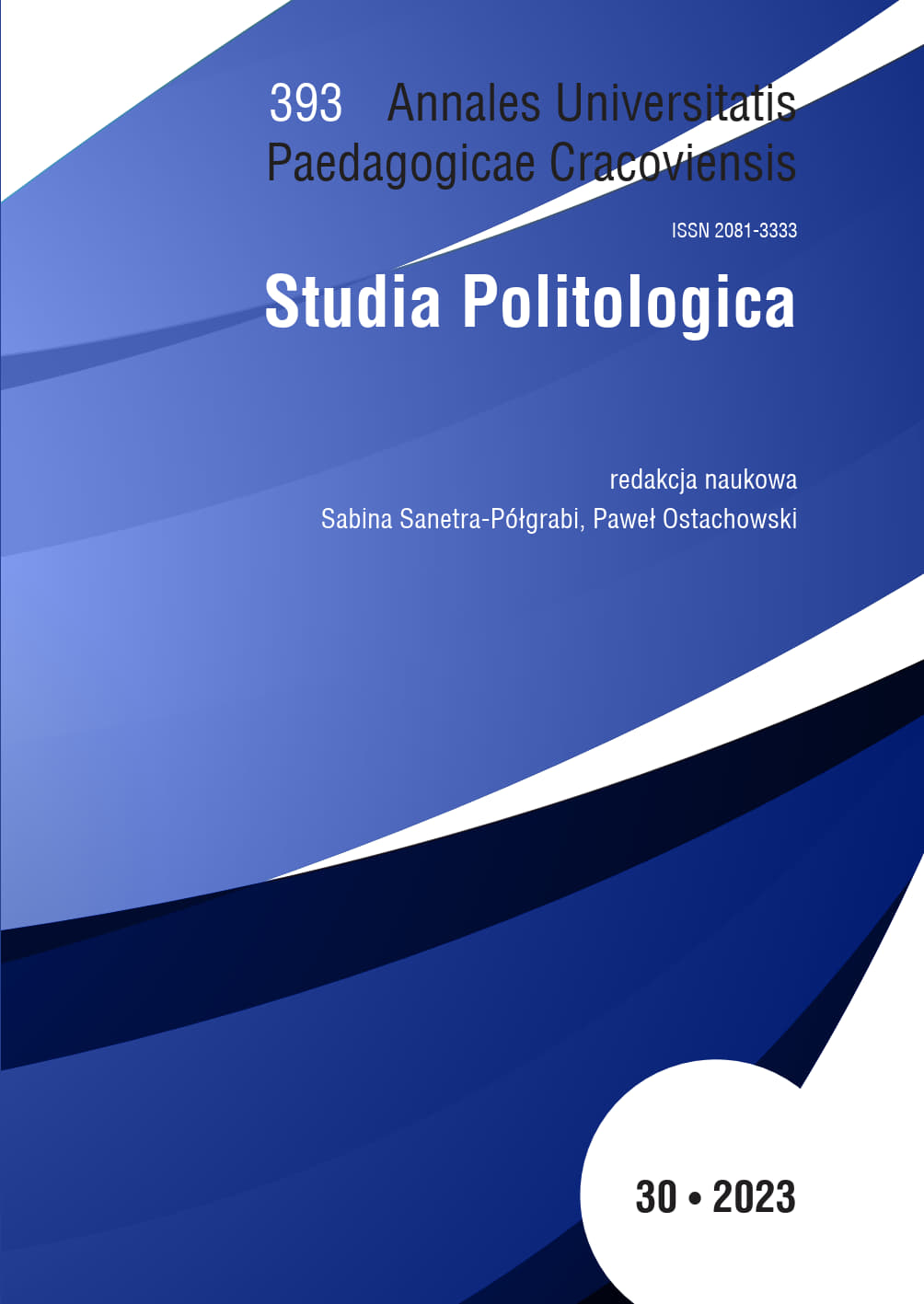
Keywords: help; students; Ukraine; University of Silesia; war
Russia’s aggression against Ukraine has led to various positions taken by governments around the world. Most countries sympathize with the Ukrainian people fighting for freedom. The ap-proach of the societies of countries that officially support Ukraine’s fight against the invader to the problem of solidarity is similarly diverse. The Polish government and the vast majority of citizens have been showing support and material assistance to the fighting nation from the very first moment of the war. The purpose of the article is to present the measures that have been taken by the academic community of the University of Silesia in Katowice towards the war in Ukraine, the communication policy of the university authorities towards refugees and to ana-lyse, based on data from reports and the university’s website, the support options available to Ukrainian students.
More...